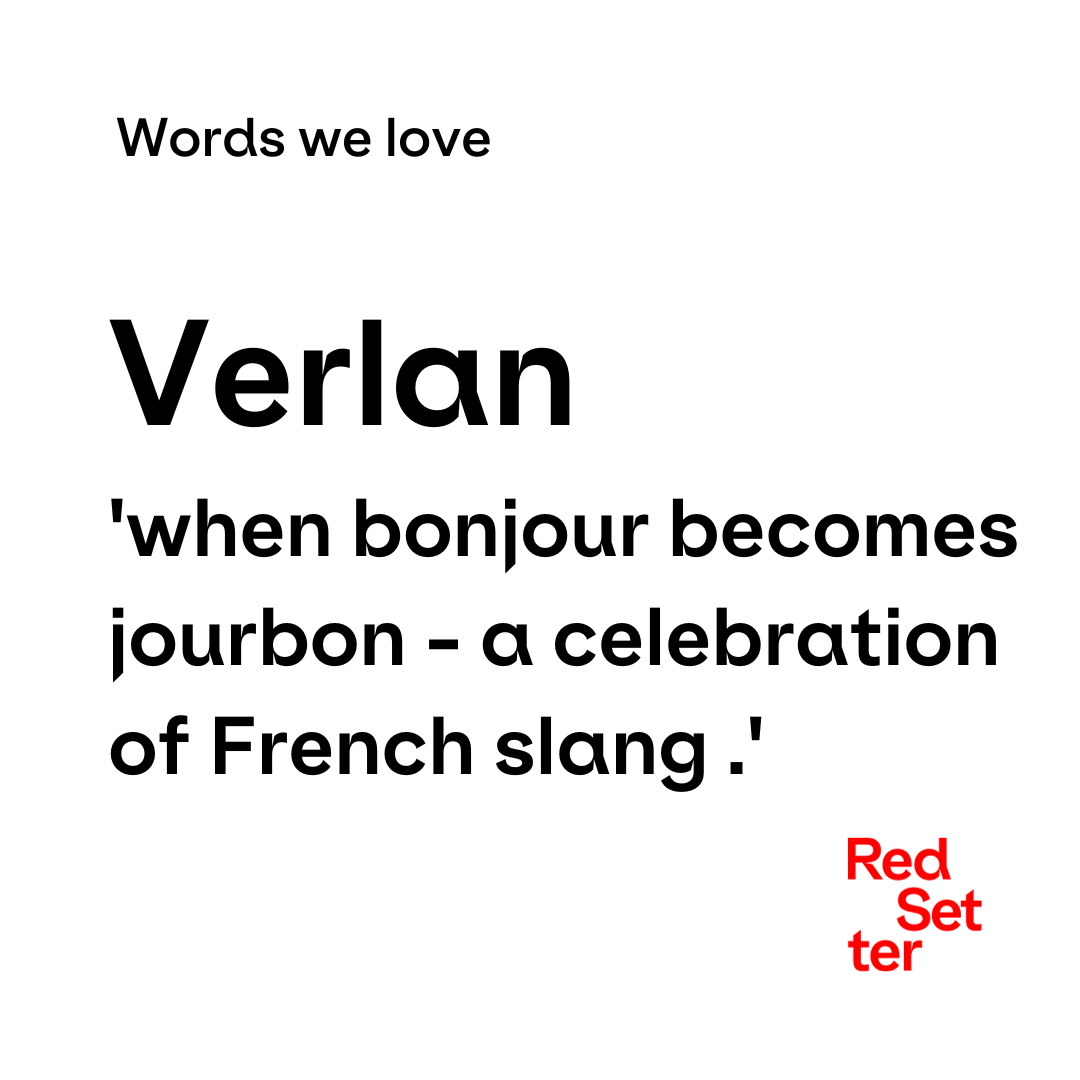Set the tone
Words we love: verlan – when bonjour becomes jourbon - a celebration of French slang
Anna Richardson-Taylor
Editorial Consultant
A committed binge of French TV police procedural Spiral recently reminded me of how much I love ‘Verlan’. The sustained inhale of rapid-fire cop dialogue had me dreaming of it; it transported me back to a childhood in Brussels trying to keep up with the cool kids of Paris.
My ode to Verlan is a bit of a cheat, as it’s not just a word, but an entire language.
Verlan is a type of slang that relies on the inversion of syllables in a word to create a new one. It is beautifully autological – derived from ‘L’envers’ (pronounced ‘lan-ver’, meaning ‘back-to-front’ in French). ‘Bonjour’ becomes ‘jourbon’; ‘laisse tomber’ (let it go), becomes ‘laisse béton’; and my personal Spiral favourite, ‘louche’ (shady, weird), becomes ‘chelou’.
The magic of Verlan is that it’s clever, it’s witty. Its use of language is unexpected but intuitive. It’s France’s answer to Cockney rhyming slang, but – in true French style – so much more sophisticated.
Just as with London’s East End argot, Verlan originated in the big city’s mean streets of disaffection and crime. Both gave birth to words that have entered the mainstream. But somehow, Verlan seems more relevant, more timely, more inclusive.
You can’t hear a ‘Porky Pie’ or a ‘Butcher’s Hook’ without thinking Lock Stock or Karl Urban’s infuriating attempt at cockney in The Boys (spare yourself the agony). Verlan on the other hand, slips into the everyday. It boosts your self-expression whatever side of the tracks you’re from.
It even featured during this year’s most talked-about cultural event, the Barbie movie release. Those up to speed on their Verlan appreciated a somewhat risqué double-entendre on the poster for the French language version. The seemingly innocent ‘She can do everything. He’s just Ken’ took on an entirely different, and raunchy, meaning.
This is the beauty of Verlan – it’s a living, breathing thing, evolving in step with cultural shifts, people’s behaviour and priorities. Born as a secret language of protest, it now enhances the pleasure of using words in a creative way. It totally represents why I love words full stop.



